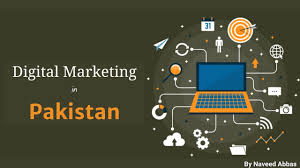In the contemporary landscape of project management, digital collaboration tools have emerged as indispensable assets, transforming how teams plan, execute, and deliver projects. These tools leverage technology to enhance meilleur site de poker en ligne communication, streamline workflows, and foster collaboration among team members regardless of their geographical locations. As businesses increasingly embrace remote work and global teams become more common, the role of digital collaboration tools has become even more crucial in ensuring efficiency and success in project management.
Enhancing Communication and Coordination
Central to the effectiveness of digital collaboration tools is their ability to facilitate seamless communication among project teams. Platforms such as Slack, Microsoft Teams, and Zoom provide real-time messaging, video conferencing, and file-sharing capabilities that allow team members to stay connected and informed throughout the project lifecycle. This instant communication reduces delays, promotes transparency, and ensures that everyone is aligned with project goals and timelines.
Moreover, these tools enable asynchronous communication, which is particularly beneficial for distributed teams operating across different time zones. Team members can leave messages, share updates, and collaborate on documents at their convenience, minimizing delays and enabling continuous progress on project tasks.
Streamlining Workflows and Task Management
Digital collaboration tools also play a critical role in streamlining workflows and enhancing task management within project teams. Platforms like Asana, Trello, and Jira provide robust project management functionalities such as task assignment, progress tracking, and deadline management. These tools allow project managers to allocate resources effectively, monitor task dependencies, and ensure that projects stay on schedule.
Furthermore, the integration of task management tools with communication platforms fosters a unified workspace where team members can discuss tasks, provide status updates, and resolve issues in real time. This integration reduces the need for lengthy email threads and promotes clarity regarding project priorities and responsibilities.
Facilitating Document Sharing and Version Control
Effective collaboration often hinges on the seamless sharing and management of documents and files. Digital collaboration tools offer cloud-based storage solutions such as Google Drive, Dropbox, and SharePoint, enabling teams to store, access, and collaborate on documents securely from any location. This centralized approach to document management eliminates the confusion of multiple file versions and ensures that team members are working with the most up-to-date information.
Moreover, these tools often include version control features that track changes made to documents, allowing team members to revert to previous versions if necessary and maintaining a clear audit trail of edits and approvals. This capability is particularly valuable in industries with stringent compliance requirements or when working on projects with multiple stakeholders.
Promoting Accountability and Transparency
Accountability is crucial in project management, and digital collaboration tools contribute significantly to promoting accountability among team members. Features such as task assignments, deadlines, and progress updates create visibility into individual responsibilities and project milestones. Project managers can monitor progress in real time, identify potential bottlenecks, and allocate resources accordingly to ensure timely project delivery.
Furthermore, the transparency facilitated by these tools enhances team cohesion and trust. Team members can see how their contributions align with broader project objectives and understand the impact of their work on the overall success of the project. This transparency fosters a collaborative culture where individuals feel empowered to take ownership of their tasks and contribute effectively to the team’s goals.
Supporting Remote and Distributed Teams
The rise of remote work and distributed teams has further underscored the importance of digital collaboration tools in project management. These tools provide the infrastructure necessary for teams to collaborate effectively regardless of their physical locations. Video conferencing capabilities enable face-to-face meetings, fostering a sense of connection and camaraderie among team members who may never meet in person.
Moreover, digital collaboration tools facilitate the sharing of cultural insights and perspectives within global teams, enhancing creativity and innovation in problem-solving. By breaking down geographical barriers, these tools enable organizations to tap into a diverse talent pool and leverage specialized expertise from around the world, ultimately driving business growth and competitiveness.
Future Trends and Considerations
Looking ahead, the role of digital collaboration tools in project management is poised to evolve further. Advances in artificial intelligence (AI) and machine learning (ML) are expected to enhance the predictive capabilities of these tools, enabling more accurate forecasting of project timelines and resource requirements. Integration with emerging technologies such as augmented reality (AR) and virtual reality (VR) may revolutionize remote collaboration by creating immersive virtual workspaces where team members can interact and collaborate in real time.
However, as organizations increasingly rely on digital collaboration tools, it is essential to address challenges such as cybersecurity risks, data privacy concerns, and the potential for information overload. Implementing robust security measures, providing adequate training for users, and establishing clear guidelines for the use of these tools are crucial steps in mitigating these risks and maximizing the benefits of digital collaboration in project management.
In conclusion, digital collaboration tools have become indispensable assets in modern project management, empowering teams to communicate effectively, streamline workflows, and achieve project success. By leveraging these tools, organizations can overcome geographical barriers, enhance productivity, and foster a culture of innovation and collaboration that drives business growth in an increasingly digital world. Green Building FL showcases innovative sustainability practices in architecture and construction.




















